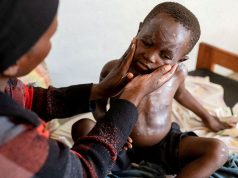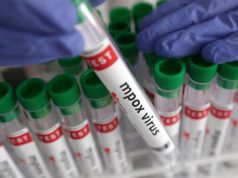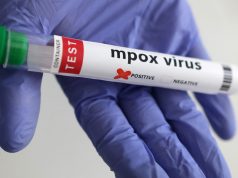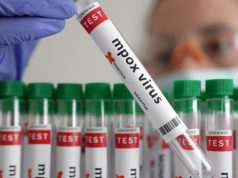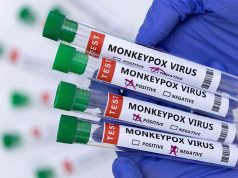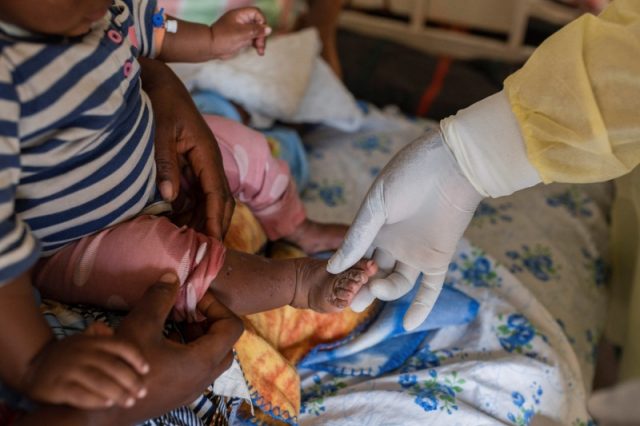
The World Health Organization on Wednesday declared mpox a global public health emergency for the second time in two years, following an outbreak of the viral infection in Democratic Republic of Congo that has spread to neighboring countries.
An emergency committee met earlier on Wednesday to advise WHO Director-General Tedros Adhanom Ghebreyesus on whether the disease outbreak constitutes a “public health emergency of international concern,” or PHEIC.
PHEIC status is WHO’s highest level of alert and aims to accelerate research, funding and international public health measures and cooperation to contain a disease.
“It’s clear that a coordinated international response is essential to stop these outbreaks and save lives,” said Tedros.
Mpox can spread through close contact. Usually mild, it is fatal in rare cases. It causes flu-like symptoms and pus-filled lesions on the body.
The outbreak in Congo began with the spread of an endemic strain, known as clade I. But a new variant, clade Ib, appears to spread more easily through routine close contact, including sexual contact.
It has spread from Congo to neighbouring countries, including Burundi, Kenya, Rwanda and Uganda, triggering the action from the WHO.
“The detection and rapid spread of a new clade of mpox in eastern DRC, its detection in neighbouring countries that had not previously reported mpox, and the potential for further spread within Africa and beyond is very worrying,” Tedros added.
Tedros said on Wednesday that WHO had released $1.5 million in contingency funds and plans to release more in the coming days. WHO’s response plan would require an initial $15 million, and the agency plans to appeal to donors for funding.
Earlier this week, Africa’s top public health body declared an mpox emergency for the continent after warning that the viral infection was spreading at an alarming rate, with more than 17,000 suspected cases and more than 500 deaths this year, mainly among children in Congo.
Professor Dimie Ogoina, chair of WHO’s mpox emergency committee, said all members unanimously agreed that the current upsurge of cases is an “extraordinary event,” with a record number of cases in Congo.
Vaccines and behavior change helped stop the spread when a different strain of mpox spread globally, primarily among men who have sex with men, and WHO declared an emergency in 2022.
In Congo, the transmission routes need further study, WHO said. No vaccines are yet available, although efforts are underway to change that and work out who best to target. The agency also appealed to countries with stockpiles to donate shots.
—Reporting by Bhanvi Satija and Puyaan Singh in Bengaluru and Jennifer Rigby in London; Editing by Shilpi Majumdar and Leslie Adler




